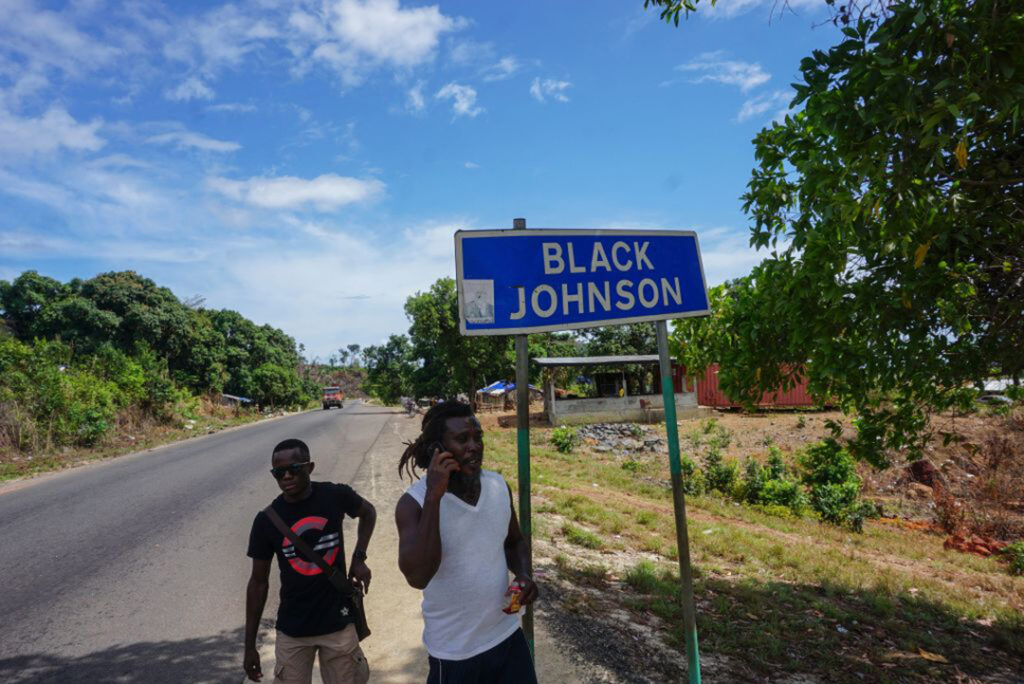ADF STAFF
Public sentiment against a planned $55 million industrial fishing harbor at Sierra Leone’s tourist-friendly Black Johnson Beach continues to be strong more than a year after it was revealed.
Concerned residents started the Save Black Johnson Beach campaign last year and it has succeeded in pressuring the government to conduct an environmental impact assessment and identify protected animal species in the area, according to a May 2022 news release. The group claims to have established legal grounds to challenge the project.
The government “knows it can’t go ahead” with the project “but refuses to admit it, so the beach and environment are still in real danger,” the release said.
The harbor is projected to be built on 100 hectares of beach and pristine rainforests that are home to protected and endangered animal species. The harbor mostly will process fish caught by Chinese trawlers, which then will be exported to China. Locals didn’t know about the deal, which may include a fishmeal factory, until after it was signed.
An opinion piece in the Sierra Leone Telegraph newspaper predicted that the project will threaten national food security, destroy pristine fish-breeding sites and devastate the livelihoods of artisanal fishermen, who already compete with scores of foreign trawlers.
“The Sierra Leone government has shamelessly gone to great lengths to tell the country that the fishmeal project will create ‘thousands’ of jobs,” James Fallah-Williams, a journalist and human rights activist, wrote in the Telegraph. “This is utterly delusional and nonsensical, a load of claptrap; the whole factory process is extremely mechanized.”
The activity of industrial trawlers already puts the livelihoods of 500,000 Sierra Leonean fisheries workers in jeopardy, as fish stocks plummeted rapidly between 2009 and 2021, according to a report by The European Times.
Locals worry that the harbor will encourage even more illegal, unreported and unregulated (IUU) fishing, which costs Sierra Leone $29 million a year. About 75% of IUU incidents in the country’s waters are connected to China, according to estimates by China Dialogue Ocean.
Response to Williams’ opinion piece were pointed.
“If our country is so desperate to have a harbor built for the fishing industry, I do believe that our country can afford the funding of $55 million from the public coffers in the Bank of Sierra Leone,” reader Michael Kanyako wrote. “Why [do] we just rely on donations from the outside world?”
Another reader, Med Sillah, wrote that private investment leading to job creation was welcome, but environmental and social affects should be considered.
“Overfishing in our waters definitely has an impact on the livelihood of people; [it] is not sustainable and environmentally damaging,” Sillah wrote. “The government needs to be careful in how it commits to these [kinds] of agreements and come out clean about this Black Johnson deal.”
Fishmeal factories are a sore subject throughout West Africa, where more than 50 such plants operate in The Gambia, Guinea-Bissau, Mauritania and Senegal.
Many areas around the factories become so polluted that tourism grinds to a halt. And the species that fuel the factories’ production already are overfished, leading to unemployment and food insecurity.
Sierra Leonean President Julius Bio acknowledged that the project is part of China’s Belt and Road Initiative, meant to expand trade by building roads, ports, dams and railroads in Africa and other parts of the world. Emma Kowa Jalloh, Sierra Leone’s fisheries minister, has said a fishmeal factory is not part of the deal.
The opaque nature of the deal raises concerns over who will benefit from the harbor and what negative effects might result, said Steve Trent, executive director of the Environmental Justice Foundation.
“It seems clear that no social or environmental impact assessments were carried out, nor were there any consultations with local communities,” Trent told the Sierra Leone Telegraph. “No data from any study of this kind has been published.”

